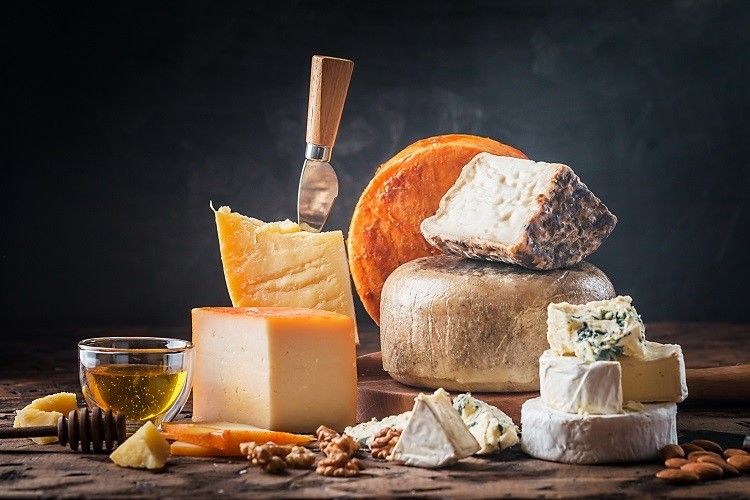Cheese 101: facts, storage tips, and global varieties

It's not easy to choose the best cheese for yourself and your family. The amount and variety of choice can be overwhelming and sometimes you don’t even know why you should consider choosing a specific one. Cheesecake holds a concentrated form of everything good about milk. There are over 4,000 cheeses across the globe, coming from the milk of sheep, goats, buffalos, cows, and even mares and camels.
How should I eat cheese?
Most varieties are stored at temperatures between 8 and 15 degrees celsius, preferably without strong temperature variations. If you buy cheese wrapped in waxed paper, keep it wrapped because that way it doesn’t dry out and can "breathe". Wrapping cheese in cling film makes it “sweat” and start to mold faster.
Cheese has the best taste if it’s been brought up to room temperature before being consumed.
Cheese has the best taste if it’s been brought up to room temperature before being consumed.

Interesting facts about cheese
- It takes 10 litres of milk to make 1kg of hard cheese.
- The French, Italians, Greeks, and Germans eat more than twice as much cheese per person compared to the British.
- Some cheeses, like mature cheddar, are stored for one year or longer in special rooms, and sometimes even caves, before they’re ready to eat.
- Blue cheeses contain a lot of calcium and phosphorus, and can also be consumed by people who have lactose intolerance.
- Because of the high protein content, cheese is harder to digest. Camembert cheese contains 20 g of protein / 100 g, the sweetener - 29 g, the body - 15 g. Fresh cheese and goat’s cheese have fewer proteins (7 g and 3 g / 100 g respectively), so they are less digestible. To stimulate digestion, cheese can be served with a salad with herbs, for example dill with green lettuce.
- Cheese can help prevent tooth decay. A piece of cheese eaten after meal stimulates saliva secretion, protects tooth enamel, and restores normal acidity to the oral cavity. In addition to calcium, cheese also provides the necessary phosphorus for dental health.
- Camembert cheese contains 2.7 mg zinc / 100 g, an important element in preventing prostate complications.
- Belgian Peter Beevers prides himself on the world's largest cheese chew that weighs no less than 600 pounds. Beevers has been included in the Guinness Book of Records since December 1st.
You should also read: ''Pairing beer and cheese: the perfect culinary duo''